Gwen Stefani Refutes Cultural Appropriation Claims: “I’m Japanese.”
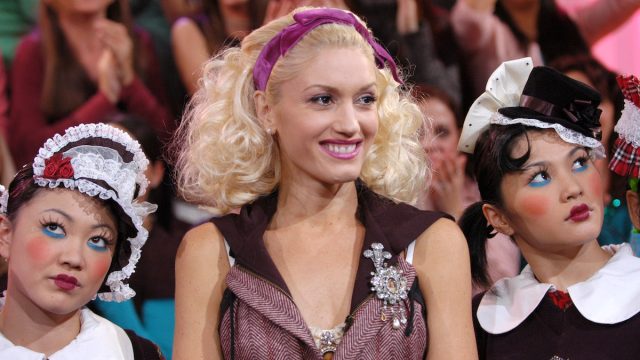
Nearly 20 years ago, No Doubt frontwoman Gwen Stefani began using Japanese culture in her work, starting with her 2004 debut solo album Love. Angel. Music. Baby. Around this time, the singer was often accompanied by four Japanese women known as the “Harajuku Girls,” who also served as backup dancers on her tour. She then put out a Harajuku Lovers fragrance collection—which featured bottles designed to look like cartoon versions of the women and herself—and a Harajuku Lovers clothing line.
Now, nearly two decades have passed, and Stefani, 53, was asked about the criticism she received for those actions by those who believe she’s guilty of cultural appropriation in a recent interview with Allure. What she said in response shocked the interviewer, as well as readers who’ve been posting about her unapologetic comments on social media. Read on to find out how Stefani justified her Harajuku era.
READ THIS NEXT: This Is the Most Hated Rock Band of All Time, According to Data.
Stefani began heavily referencing Japanese culture amid her first solo release.
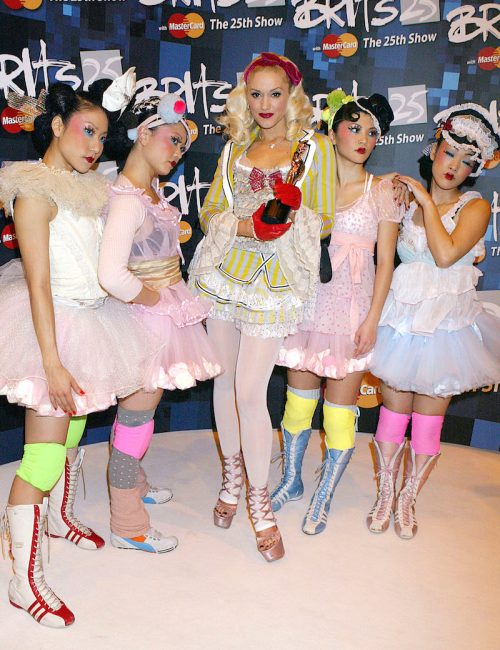
Love. Angel. Music. Baby. kicked off a new era for Stefani with a marked change in her aesthetic. Harajuku is a district of Tokyo known for fashion, and the singer began using the word in her branding, as well as having Japanese women Maya Chino, Jennifer Kita, Rino Nakasone, and Mayuko Kitayama—also known as Love, Angel, Music, and Baby—join her at appearances and on tour.
She faced backlash for this at the time.
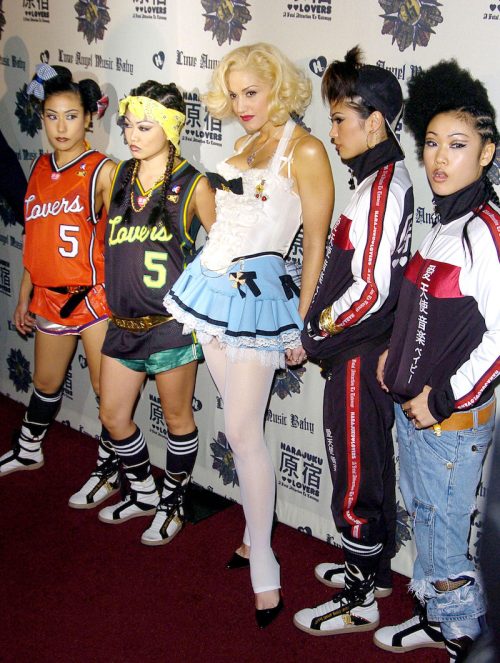
Even in the mid-’00s, Stefani’s use of Japanese culture was called out. As reported by TIME, comedian Margaret Cho called the Harajuku Girls a “racial stereotype”, and Mad TV mocked Stefani with a parody song called “Aren’t Asians Great?” A Salon article published in 2005 also calls her branding “appropriation.”
In the years since, Stefani has continued on with her career virtually unscathed, with mentions of the Harajuku Girls—and other instances of cultural appropriation—surfacing occasionally. In addition to her music, she’s now also known for her work on The Voice and her marriage to The Voice co-host, Blake Shelton.
For more celebrity news delivered right to your inbox, sign up for our daily newsletter.
She confronted appropriation claims in a new interview.

Allure writer Jesa Marie Calaor—who is Filipina American—writes in her interview piece with Stefani about her own experience with that era of the singer’s career. She says that she was excited at first to see mainstream Asian representation when the Harajuku Lovers fragrances came out, but eventually realized that Stefani was appropriating Asian culture. The piece points out that Stefani wasn’t only influenced by Japanese culture but is a white person who has monetized it.
Asked about Harajuku Lovers, Stefani told Calaor that she became intrigued by Japanese culture while her father was working for Yamaha and had to travel regularly to the country.
“That was my Japanese influence and that was a culture that was so rich with tradition, yet so futuristic [with] so much attention to art and detail and discipline and it was fascinating to me,” Stefani said. Then, she said that when she got to travel to Japan as an adult, “I said, ‘My God, I’m Japanese and I didn’t know it … I am, you know.”
Calaor wrote that Stefani asserted that she was Japanese multiple times, including saying that she considers herself “a little bit of an Orange County girl, a little bit of a Japanese girl, a little bit of an English girl.” According to Allure, a representative for the singer reached out the next day to claim that Stefani’s comments had been “misunderstood,” but “her team declined to provide a statement or participate in a follow-up interview.” Best Life has reached out to a representative for Stefani for comment but has not yet received a response.
She called her Harajuku era “a beautiful time of creativity.”
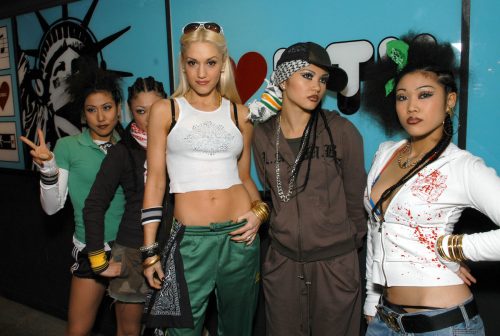
Stefani went on to tell Allure, “If [people are] going to criticize me for being a fan of something beautiful and sharing that, then I just think that doesn’t feel right. I think it was a beautiful time of creativity… a time of the ping-pong match between Harajuku culture and American culture.” She added: “[It] should be okay to be inspired by other cultures because if we’re not allowed then that’s dividing people, right?”
The star also told the magazine that she also felt as though she was a part of the Latinx and Hispanic communities around where she grew up in Southern California. “The music, the way the girls wore their makeup, the clothes they wore, that was my identity,” Stefani said. “Even though I’m an Italian American—Irish or whatever mutt that I am—that’s who I became because those were my people, right?”
She’s doubled down on her actions before.
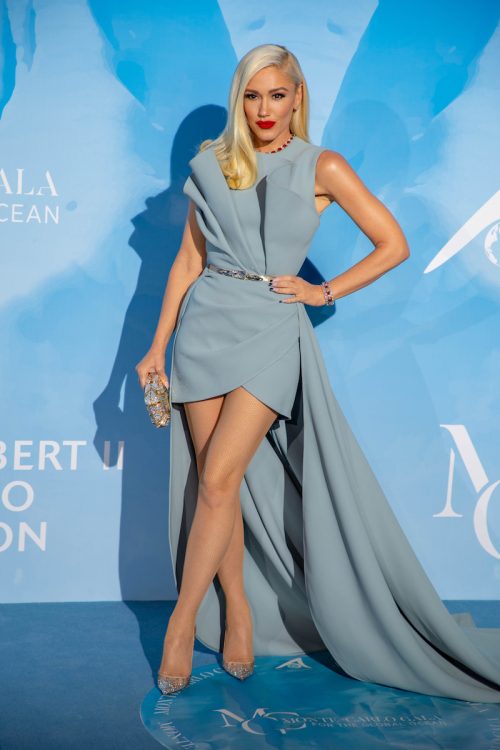
In a 2021 interview with Paper, Stefani shared similar thoughts when asked about the Harajuku Girls period.
“If we didn’t buy and sell and trade our cultures in, we wouldn’t have so much beauty, you know?” she said. “We learn from each other, we share from each other, we grow from each other. And all these rules are just dividing us more and more.”
In 2019, she told Billboard, “[W]hen people asked me about it during radio interviews, I told them this was all a concept and we were having fun. By the way, the girls were cast to be dancers—that’s all. We went to Nobu in London and we talked about the concept of the record and I showed them my style bible. Judging by their own personalities, I called them ‘Love,’ ‘Angel,’ ‘Music’ and ‘Baby.’ It was like we were creating a group together.”
She added, “I get a little defensive when people [call it cultural appropriation], because if we didn’t allow each other to share our cultures, what would we be? You take pride in your culture and have traditions, and then you share them for new things to be created.”